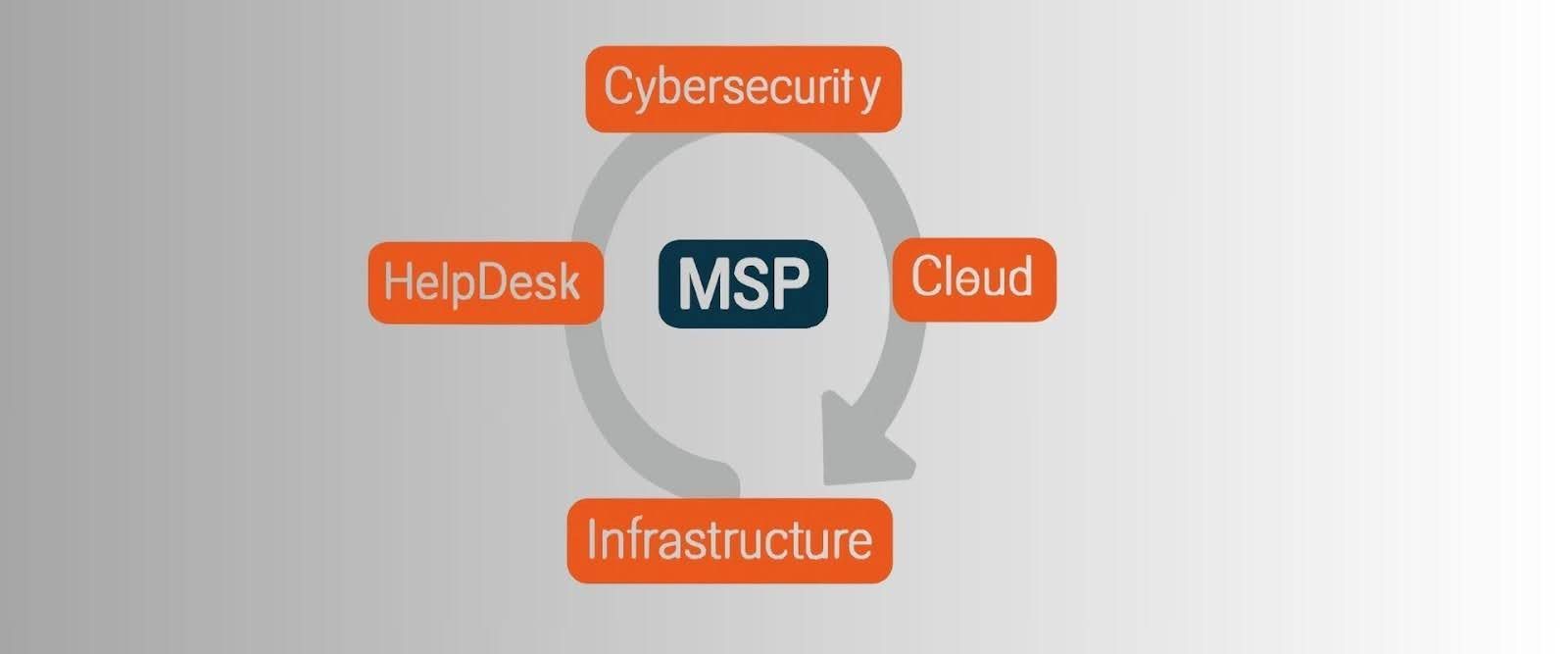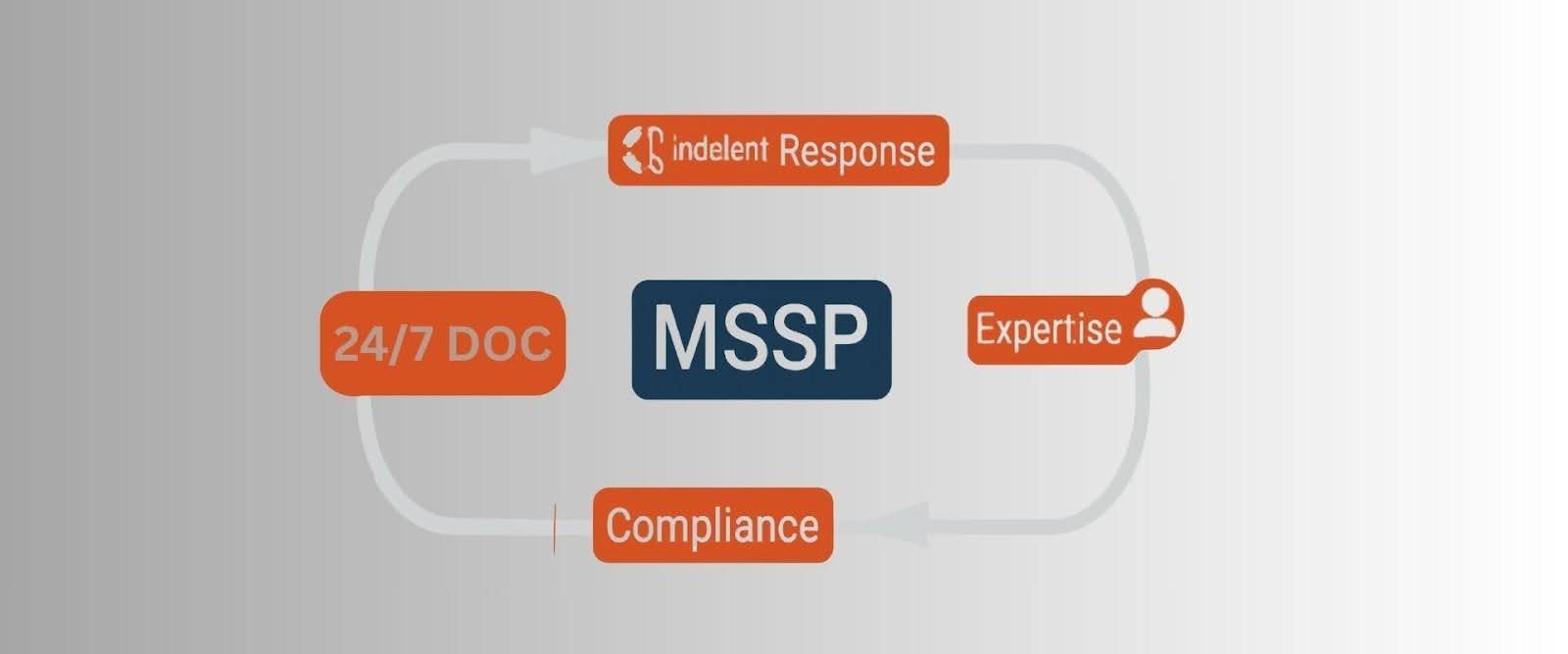Difference Between MSP and MSSP Explained Clearly
Cyberattacks are more frequent, sophisticated, and expensive than ever before. Businesses are facing rising pressure to secure their IT environments while also ensuring they run efficiently. This often leads to confusion between two types of service providers: Managed Service Providers (MSPs) and Managed Security Service Providers (MSSPs). Understanding the difference between MSP and MSSP is essential for businesses deciding how to protect and manage their infrastructure effectively.
In this guide, we will explain that MSPs and MSSPs serve different but complementary roles. While both offer outsourced support, their core functions, tools, and outcomes are distinct. If you're looking to safeguard your organization against threats while maintaining smooth IT operations, understanding MSP vs MSSP will help you make the right investment. For businesses that want both reliability and protection,
Febyte provides integrated IT and security solutions according to modern needs.
What is an MSP?

A Managed Service Provider, or MSP, is responsible for the day-to-day management of a company's IT infrastructure. They focus on uptime, system performance, and end-user support. An MSP ensures that your servers, networks, devices, and cloud services function smoothly, often through:
- Proactive monitoring and maintenance
- Helpdesk and user support
- Software updates and patch management
- Data backup and recovery
- Cloud services and network administration
Businesses that do not have a full in-house IT team often rely on MSPs to manage their infrastructure, reduce downtime, and scale their technology as they grow. MSPs typically offer monthly service agreements that cover monitoring, troubleshooting, system updates, data backups, and general IT support.
MSPs are particularly effective for companies that prioritize operational stability, efficiency, and predictable IT costs. However, while some MSPs may offer basic antivirus or firewall configurations, their primary focus is not on in-depth security.
What is an MSSP?

A Managed Security Service Provider, or MSSP, specializes in cybersecurity services. Unlike MSPs, MSSPs focus on protecting your systems from cyber threats, detecting unusual behavior, and responding to incidents in real-time. Their core function is to safeguard sensitive data, ensure regulatory compliance, and provide peace of mind through dedicated security monitoring.
An MSSP operates specifically on
cybersecurity services with a Security Operations Center (SOC) that offers 24/7 surveillance of your network and systems. They use advanced tools such as:
- SIEM (Security Information and Event Management)
- Endpoint Detection and Response (EDR)
- Threat intelligence platforms
- Firewall and intrusion prevention systems
- Incident response and forensic analysis
MSSPs are essential for industries that handle confidential information or are subject to strict compliance requirements, such as finance, healthcare, and e-commerce. Their capabilities go far beyond basic IT security, providing an extra layer of protection that complements your IT infrastructure.
MSP vs MSSP: Understanding the Core Differences
The key difference between MSP and MSSP lies in their primary objectives. MSPs aim to keep your systems running efficiently. They handle network uptime, hardware maintenance, and user support. On the other hand, MSSPs are focused on defending your systems from cyber threats. They monitor for breaches, handle incident response, and ensure compliance with regulatory standards.
Here’s a clear comparison:
| Feature | MSP (Managed Service Provider) | MSSP (Managed Security Service Provider) |
|---|---|---|
| Primary Focus | IT infrastructure and support | Cybersecurity and threat protection |
| Operations Center | Network Operations Center (NOC) | Security Operations Center (SOC) |
| Key Services | Monitoring, helpdesk, cloud, backups | Threat detection, incident response, compliance |
| Tools Used | RMM, PSA, patching tools | SIEM, EDR, threat intelligence platforms |
| Target Business Need | Stability, uptime, cost-efficiency | Security, risk mitigation, data protection |
| Compliance Coverage | Basic to moderate | Advanced, industry-specific |
While MSPs typically run a Network Operations Center (NOC), MSSPs operate a Security Operations Center (SOC). The tools they use are different as well. MSPs use Remote Monitoring and Management (RMM) platforms to manage systems, whereas MSSPs rely on SIEM and threat detection tools to secure data.
Both
service providers can complement each other. A business may use an MSP for infrastructure and productivity needs, while depending on an MSSP for cybersecurity protection. The overlap in some services can create confusion, but the difference in specialization and depth of expertise is crucial.
Why It Matters: IT Support vs Security
Many businesses assume that their MSP also covers cybersecurity. While MSPs may provide basic security features, these are often not enough in today’s threat landscape. A single vulnerability can result in data breaches, downtime, and regulatory fines.
By clearly understanding the roles of MSP vs MSSP, companies can make more informed decisions. Having a reliable IT system is not enough if it’s not secure. Similarly, high-end security is meaningless if your systems are unstable. That’s why businesses today increasingly look for either both types of services or a provider that offers integrated solutions.
Choosing the Right Fit for Your Business
If your business is growing and needs reliable day-to-day IT operations, an MSP is a good place to start. However, if you deal with sensitive data, are subject to compliance regulations, or face cyber threats, investing in an MSSP is essential.
The size of your internal IT team also plays a role. Organizations with a small or nonexistent IT team may benefit more from a comprehensive MSP. Companies with in-house IT teams that lack security expertise might choose to augment their capabilities with an MSSP. Others may find value in a hybrid model that combines both functions into a single service agreement.
It's also important to assess your risk tolerance:
- If your company cannot afford downtime due to ransomware or data breaches, MSSPs should be part of your strategy.
- If productivity and infrastructure management are top priorities, then partnering with an MSP ensures smoother operations.
Febyte: The Ideal Partner for IT and Security
Febyte provides a unique value for businesses looking to optimize performance and safeguard data. By combining the core strengths of both MSP and MSSP models, Febyte delivers a unified approach to IT and security. From proactive infrastructure management and cloud support to real-time threat detection and incident response, Febyte ensures that your technology works efficiently and stays secure. This hybrid model eliminates the need to juggle multiple vendors, offering peace of mind with a single trusted partner.
Conclusion: Secure and Support Your Business the Smart Way
In today’s digital-first environment, businesses need more than just functional IT systems; they need secure, compliant, and efficient infrastructures. Understanding the difference between MSP and MSSP helps you make smarter decisions about who manages your systems and how. While MSPs focus on keeping your operations running smoothly, MSSPs ensure that everything remains secure and protected. For businesses looking to reduce complexity and enhance performance, choosing a provider that blends both roles is ideal.
Whether you're starting fresh or scaling your operations, partnering with experts like Febyte helps you stay ahead of evolving challenges. It's time to align your IT and security strategies with Febyte, which understands both sides.
Get in touch with our IT experts today to transform your business into a smarter, safer, and more streamlined operation.
FAQs About Managed Services Comparison
What is the difference between MSP and MSSP?
An MSP manages IT infrastructure and provides user support, while an MSS offers dedicated cybersecurity services, including threat monitoring, incident response, and compliance.
Can an MSP offer security services?
Some MSPs include basic security like antivirus and firewalls, but they typically lack the advanced tools and expertise that MSSPs provide.
Do I need both an MSP and MSSP?
If your business depends on both operational efficiency and strong data protection, a combination of both is recommended. Many companies use both to ensure full coverage.
Is it cost-effective to use both services?
Using a provider that combines MSP and MSSP capabilities, like Febyte, can be more cost-effective and efficient than managing separate contracts.
Which one should I choose first?
Start with your most urgent needs. If uptime and IT support are your pain points, begin with an MSP. If you're concerned about cyber threats or compliance, an MSSP should be prioritized.
